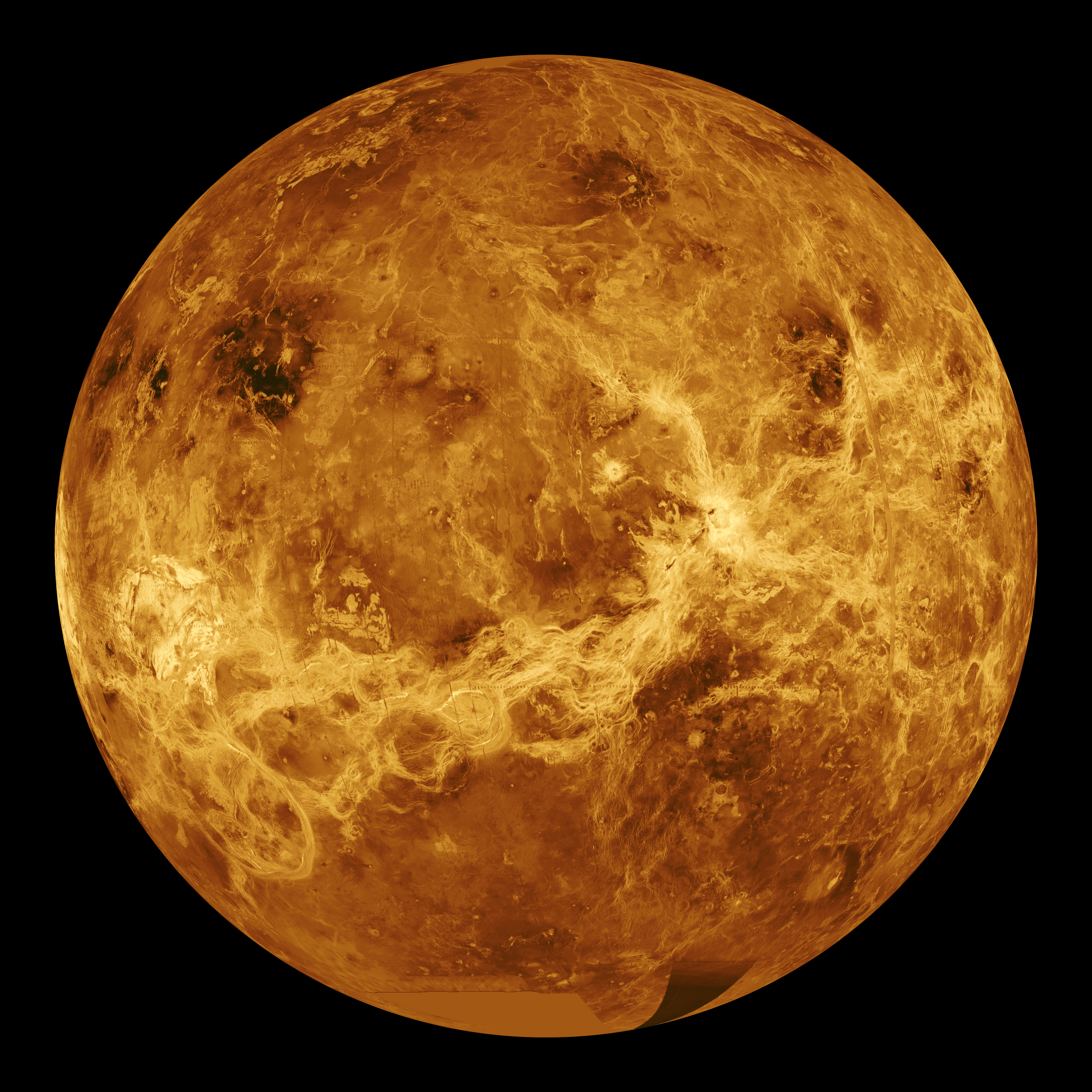
"venus has an extremely dense atmosphere, which consists mainly of carbon dioxide and a small amount of nitrogen. the atmospheric mass is 93 times that of earth's atmosphere while the pressure at the planet's surface is about 92 times that at earth's surface—a pressure equivalent to that at a depth of nearly 1 kilometer under earth's oceans. the density at the surface is 65 kg/m³ (6.5% that of water). the co2-rich atmosphere, along with thick clouds of sulfur dioxide, generates the strongest greenhouse effect in the solar system, creating surface temperatures of over 460 °c (860 °f). this makes venus's surface hotter than mercury's which has a minimum surface temperature of -220 °c and maximum surface temperature of 420 °c, even though venus is nearly twice mercury's distance from the sun and thus receives only 25% of mercury's solar irradiance.
studies have suggested that several billion years ago venus's atmosphere was much more like earth's than it is now, and that there were probably substantial quantities of liquid water on the surface, but a runaway greenhouse effect was caused by the evaporation of that original water, which generated a critical level of greenhouse gases in its atmosphere.
thermal inertia and the transfer of heat by winds in the lower atmosphere mean that the temperature of venus's surface does not vary significantly between the night and day sides, despite the planet's extremely slow rotation. winds at the surface are slow, moving at a few kilometers per hour, but because of the high density of the atmosphere at venus's surface, they exert a significant amount of force against obstructions, and transport dust and small stones across the surface. this alone would make it difficult for a human to walk through, even if the heat were not a problem.
above the dense co2 layer are thick clouds consisting mainly of sulfur dioxide and sulfuric acid droplets. these clouds reflect about 60% of the sunlight that falls on them back into space, and prevent the direct observation of venus's surface in visible light. the permanent cloud cover means that although venus is closer than earth to the sun, the venusian surface is not as well lit. in the absence of the greenhouse effect caused by the carbon dioxide in the atmosphere, the temperature at the surface of venus would be quite similar to that on earth. strong 300 km/h winds at the cloud tops circle the planet about every four to five earth days." /wikipedia
air - venus


0 comments:
Post a Comment